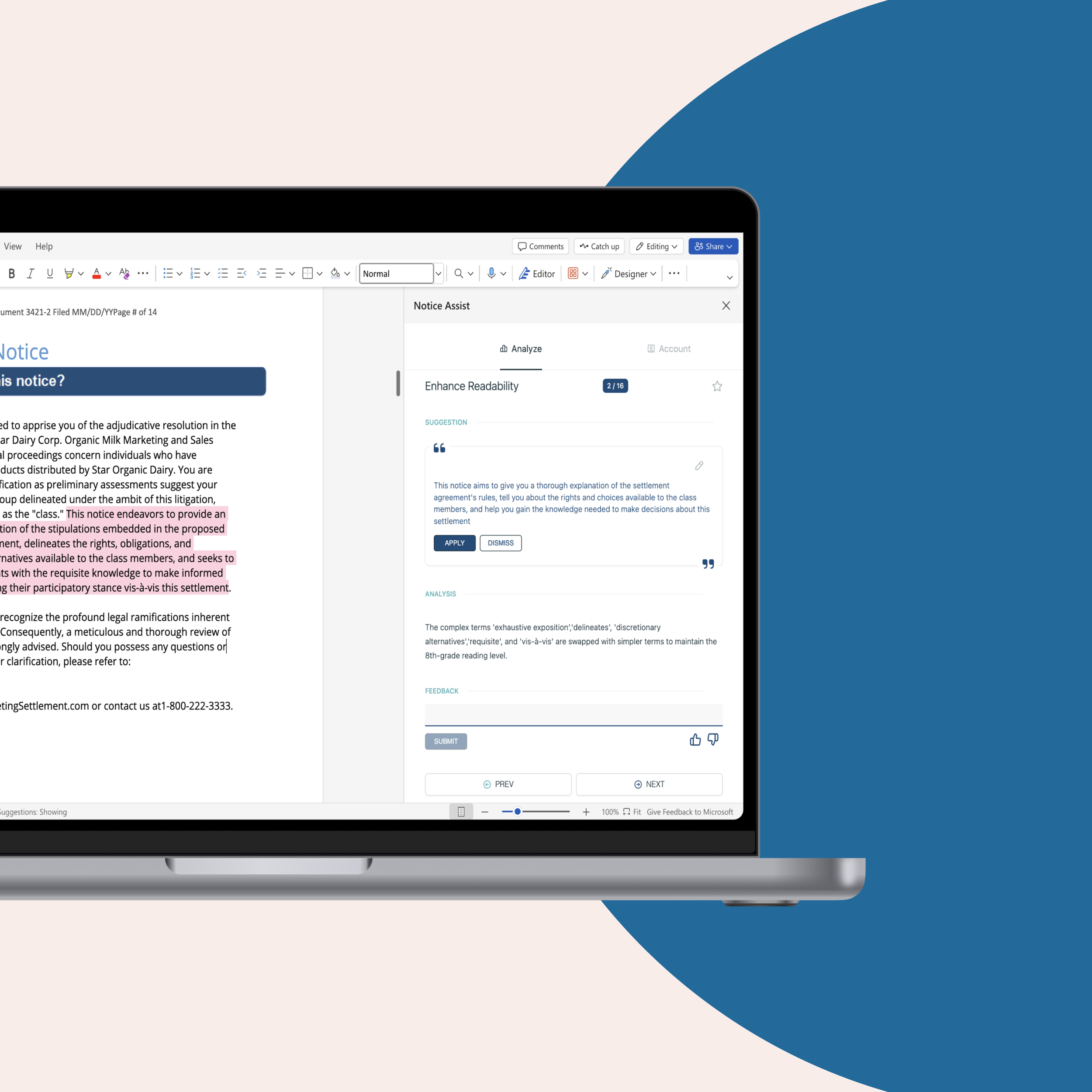Sixth Circuit Ruling Restricts Imposition of Arbitration
Adam Hansen, Principal Apollo Law
For class action practitioners, few topics inspire more doom and gloom than arbitration. And not without justification. Over the past 30 years, the Supreme Court has systematically transformed arbitration from a little-known device for resolving commercial disputes to a legal leviathan capable of gobbling up and shutting down employment, consumer, and civil rights litigation before those cases ever see their day in court.
A recent Sixth Circuit decision, Taylor v. Pilot Corp., --- F.3d. ---, 2020 WL 1804796 (6th Cir. April 9, 2020), however, offers a rare glimmer of hope. That decision broadly reaffirms that an agreement to arbitrate must be just that—an agreement. It suggests that questions about the formation of that agreement must be decided by a court—not an arbitrator. And it reaffirms the courts’ power to supervise discovery going to the question of contract formation without interference from appellate courts or arbitrators. All told, the case vindicates some important substantive principles and suggests some useful tactics for fighting back against arbitration in the class and collective action context.
The Case
The case began on a familiar path. An FLSA collective action was certified and several thousand opt-in plaintiffs joined the case. The defendant moved to compel certain plaintiffs to arbitration. Before responding, however, the plaintiffs asked the court for discovery relevant to the issue of contract formation. Many of the supposed arbitration agreements were electronically generated and several plaintiffs had no memory of ever seeing them. The defendant opposed discovery, arguing that the arbitration agreements delegated the issue of contract formation, along with any discovery going to that question, to the arbitrator to decide. The district court permitted the discovery and held that contract formation is always a question for the court to decide—it cannot be delegated to the arbitrator. The defendant appealed that decision. In light of that appeal, the district court denied the motion to compel arbitration without prejudice. The employer appealed that decision as well.
If that sounds like a procedural morass, it is. But here’s the bottom line. On the employer’s view, once arbitration is invoked, the court case must end. Any questions about the propriety of arbitration must be resolved in—you guessed it—arbitration. On the employees’ view, the court must actually assess whether arbitration was agreed to.
In understanding the contours of the case and the court’s decision it’s helpful to have some background on arbitration generally and delegation clauses in particular.
The Sixth Circuit’s Decision in Pilot
The Sixth Circuit held that it lacked jurisdiction over the employer’s appeal. With respect to the district court’s order permitting discovery of information relevant to contract formation, the Sixth Circuit held that an order delaying a motion to compel arbitration is not an appealable order denying a motion to compel arbitration. 9 U.S.C. § 16(a)(1)(B). That remained the case despite the district court’s fairly definitive assertion of power to rule on formation issues and oversee discovery relevant to those issues. The Sixth Circuit similarly held that the district court’s order denying the motion to compel arbitration while the appeal was pending was not appealable. The Court said it would not permit a party to “manufacture jurisdiction” by essentially head-faking the district court into denying its motion by filing a spurious appeal.
The Sixth Circuit went on, in dicta, to strongly suggest that issues of contract formation must be decided by a court—and therefore cannot be delegated to an arbitrator. The FAA explicitly contemplates court oversight of formation questions and even jury trials if the making of an arbitration agreement is “in issue.” 9 U.S.C. § 4. And as the court recognized, “The FAA’s demand for consent-based arbitration agreements would be severely undermined if the law operated otherwise.”
The court dismissed the appeal and sent the case back to the district court for the appropriate discovery to proceed.
Some Substantive and Tactical Takeaways
The court’s decision suggests some substantive and tactical takeaways.
Most obviously, plaintiffs should be making employers prove that arbitration agreements were formed—offer, acceptance, consideration, all of it. Formation is the one piece of the analysis that is not decidedly slanted in favor of parties seeking arbitration. The burden of proof is on the defendant, Knutson, 771 F.3d at 565, the presumption in favor of arbitrability doesn’t apply, Begonja, 159 F. Supp. 3d at 413, the issue can’t be delegated away to an arbitrator, Spahr, 330 F.3d at 1273, and, so long as the contract formation rules being employed do not single out and disfavor arbitration, they will not be preempted by federal law, Kindred Nursing Ctrs. Ltd. P’ship v. Clark, 137 S. Ct. 1421, 1426 (2017).
Second, plaintiffs should be demanding discovery related to formation. Don’t trust the declaration from the HR person saying “yeah we have agreements for everyone.” Make the defendants show their work. When the making of an arbitration agreement is in dispute, the FAA entitles the parties to reasonable and proportional discovery. See Simula, 175 F.3d at 726 (explaining that “[t]he FAA provides for discovery and a full trial” if “the making of the arbitration agreement” is at issue); Guidotti v. Legal Helpers Debt Resolution, L.L.C., 716 F.3d 764, 774 (3d Cir. 2013) (explaining that parties must be given the opportunity to conduct discovery related to an arbitration agreement’s validity); Deputy v. Lehman Bros., 345 F.3d 494, 511 (7th Cir. 2003) (parties must be given the opportunity to conduct discovery on “the authenticity of the signature” on an agreement).
The Federal Rules of Civil Procedure apply to proceedings under the FAA unless the FAA specifies different procedures. Fed. R. Civ. P. 81(a)(6)(B). Under Rule 26, “[p]arties may obtain discovery regarding any nonprivileged matter that is relevant to any party’s claim or defense and proportional to the needs of the case.” Fed. R. Civ. P. 26(b)(1). Accordingly, courts routinely order discovery related to the formation of arbitration agreements. See, e.g., Alvarez v. T-Mobile USA, Inc., 822 F. Supp. 2d 1081, 1085 (E.D. Cal. 2011); Northport Health Servs. of Ark., LLC v. Rutherford, No. CIV.A. 07-5184, 2008 WL 2273666, at *4 (W.D. Ark. May 30, 2008); Hicks v. Citigroup, Inc., No. C11-1984-JCC, 2012 WL 254254, at *1-2 (W.D. Wash. Jan. 26, 2012).
Matters of contract formation warrant extra scrutiny where the party seeking arbitration claims to use an electronic procedure to bind others to arbitration. “While … the Internet has exposed courts to many new situations, it has not fundamentally changed the principles of contract.” Nguyen v. Barnes & Noble Inc., 763 F.3d 1171, 1175 (9th Cir. 2014) (quoting Register.com, Inc. v. Verio, 356 F.3d 393, 403 (2d Cir. 2004)); see also Berkson v. Gogo LLC, 97 F. Supp. 3d 359, 377-413 (E.D.N.Y. 2015) (“Sometimes forgotten in the Internet Age—where contracts of adhesion are often the rule … —is the essential element of contract formation: mutual manifestation of assent”).
The FAA even contemplates jury trials on contract formation in appropriate cases.
And third, if you can convince a district court judge to order discovery related to contract formation, that order is not appealable as a matter of right. Until the district court actually denies the motion to compel arbitration, the case stays where it belongs—in district court.
Conclusion
Certainly, the Sixth Circuit’s decision in Pilot will not prevent many worthy cases from being swallowed by arbitration. But Pilot does suggest some basic tools available to plaintiffs to make sure that only people who actually agreed to arbitrate are compelled to do so.











